If you often practice outdoors or in remote locations, generators for pitching machines sound like a reliable solution. Ideally, you would need a generator supplying more than 1000W of electricity per hour since most pitching machines use 1000W of electricity. In that case, a portable generator for pitching machines like Jackery Solar Generator 2000 Plus is an ideal choice to ensure the machine works continuously.
A solar-powered generator for pitching machines ensures you can charge the appliance in a gaming field with no power outlets. The choice of the right battery backup will depend on its capacity, price, output ports, quiet, and reliability. However, a good pitching machine generator is a big investment, and this guide will help you choose the best generators for pitching machines.
How Much Power Do You Need to Run a Pitching Machine
Most pitching machines operate on 1000 watts and need 110V AC electricity, but different models may require more or less power. The power needed by a pitching machine will depend on its size and the number of hours it is used. If the size of the appliance is larger, you'll need a large power source for the pitching machine. On the other hand, a small portable generator would work for small pitching machines with fewer features.
How Many Watts Does Pitching Machine Use?
Most pitching machines use 1000 watts of electricity per hour, though this might vary depending on the type and model. For example, the arm action pitching machines draw around 1000W, whereas the circular wheel machine consumes 1000 - 1500W. The exact wattage consumption of the circular wheel pitching machine will depend on the number of wheels, speed, and motor power.
Compressed air pitching machines usually consume more electricity of up to 1500-2000W since they need power to compress the air and operate the air valves. You can always check the product specifications in the user manual to know the exact wattage consumption of the pitching machine. If the wattage is not available directly on the pitching machine itself or in the user manual, you can consider multiplying volts and amps to get the watts.

How Much Electricity Does Pitching Machine Use?
The electricity needed by a pitching machine will depend on the appliance's wattage consumption and operating hours per day. For example, if your practice session lasts for around 1 - 2 hours and you're using the pitching machine (1000W) for 30 - 45 minutes, the electricity required will be 500Wh - 750Wh. Here's a table revealing the electricity usage of different types of pitching machines:
|
Appliances |
Watts (W) |
Hours Per Day (H) |
Electricity Required (Wh) |
|
Arm Action Pitching Machine |
1000W |
30 - 45 minutes |
500-750Wh |
|
Circular Wheel Machine |
1000 - 1500W |
30 minutes |
500-750Wh |
|
Compressed Air Pitching Machine |
1500-2000W |
30 minutes |
750-1000Wh |
The Best Generators for Pitching Machine
Jackery is a leading solar brand that's well-known for manufacturing solar generators, solar panels, and battery power stations. The highly efficient Jackery Solar Generators come in different sizes and can charge most pitching machines for long hours. Based on the wattage consumption of the pitching machines, here we will recommend three of the best portable generators from Jackery:
Jackery Solar Generator 1000 Plus
The Jackery Solar Generator 1000 Plus is a versatile and expandable solar-powered generator that can power small pitching machines, consuming around 1000W of electricity per hour. The fold-out handles and ergonomic design help pull the portable generator around and charge pitching machines of different sizes. Its whisper-quiet mode ensures quiet operation that does not disturb your game while powering the appliances.

Jackery Solar Generator 2000 Plus
The large-size Jackery Solar Generator 2000 Plus is fully capable of charging most pitching machines for long practice sessions. It's compact in size and features a large battery capacity to charge most types and sizes of pitching machines and other outdoor appliances if required. It also features double wheels and pull rods to move the portable generator around anywhere you want.

Jackery Solar Generator 3000 Pro
The Jackery Solar Generator 3000 Pro packs a lot of power to small and large pitching machines. It can provide clean and safe power to electronics whenever and wherever required. The large capacity can charge 99% of outdoor appliances, including pitching machines and other gaming electronics. The solar-powered generator features a pull rod, foldable handle, and double wheels for easy movement to the gaming locations.

|
Appliances |
Watts |
Running Time |
|
Arm Action Pitching Machine |
1000W |
Jackery Solar Generator 1000 Plus: 1.0H Jackery Solar Generator 2000 Plus: 1.7H Jackery Solar Generator 3000 Pro: 2.5H |
|
Circular Wheel Machine |
1000 - 1500W |
Jackery Solar Generator 1000 Plus: 42 - 60 minutes Jackery Solar Generator 2000 Plus: 1.1-1.7H Jackery Solar Generator 3000 Pro: 1.7-2.5H |
|
Compressed Air Pitching Machine |
1500-2000W |
Jackery Solar Generator 2000 Plus: 52 - 70 minutes Jackery Solar Generator 3000 Pro: 1.2-1.7H |
Types of Portable Power Supply for Pitching Machine
There are different portable power supplies for pitching machines available, and they differ based on the fuel types and design. While all the portable power supplies work to charge the pitching machine, each of them comes with its own pros and cons. Here's a brief overview of various types of portable generators for pitching machines available:
Gas-Powered Generator
Gas-powered generators offer high power output and are suited for charging appliances for long hours. However, they emit a lot of noise, which makes them less suitable for places where noise is not an issue. Another thing to note is that some gas generators do not emit steady voltage, which makes pitching inconsistent and can even damage the internal parts. Therefore, you should pick a generator that is equipped with Automatic Voltage Regulation (AVR).
Inverter Generator
Inverter generators are portable, but they work differently from other types of generators. They generate AC current just like the others, but it's then converted to DC and inverted back to AC to charge electronics. They are suitable for sensitive electronics because they offer clean power and steady voltage. However, the added complexity of the inverter generator can be significantly more expensive.
Solar Generator
Solar generators are one of the best eco-friendly charging solutions for pitching machines. Unlike gas-powered generators, they do not emit toxic fumes or noise. Portable solar generators for pitching machines can be moved to different locations to charge them and ensure uninterrupted play. Jackery Solar Generators are eco-friendly and portable solar-powered generators that can charge most sizes and types of pitching machines for hours. They have a foldable handle and ergonomic design, which makes them easy to move from home to gaming locations and vice versa.
|
|
Pros |
Cons |
|
Gas-Powered Generator |
Natural gas is widely available and suitable for use anywhere. A gas generator is less expensive and operates as long as there is an adequate gas supply. |
Gas generators emit pollutants in the environment and do not suit indoor needs. They require regular maintenance for optimal functioning, which makes them expensive in the long run. |
|
Inverter Generator |
Inverter generators are superior alternatives to traditional gas generators and are known for their fuel efficiency, clean power, and low noise level. |
They are more expensive due to the requirement for additional components, and they use fossil fuels to produce electricity. |
|
Solar Generator |
A solar-powered generator does not have any moving parts, which is why it requires little maintenance. It is an eco-friendly and reliable power source that uses nothing but solar energy. |
It is relatively expensive compared to other generators, and its power output might depend on the weather and the availability of sunlight. |
How to Choose a Portable Generator for a Pitching Machine
When making the right selection of a portable generator for your needs, you must consider factors such as battery capacity, price, quiet, and ease of use. Here, we will reveal different factors you must consider to guide your decision and help you choose the right generator for your pitching machine.
Capacity
Ideally, the capacity of the portable generator should exceed the wattage consumption of the pitching machines. For example, if the pitching machine consumes 1000W of electricity per hour, you'll need a portable generator that efficiently supplies the required wattage for hours. Remember, a higher-capacity generator can run additional appliances like lights, portable coolers, ice makers, etc., so your choice can vary according to the capacity and power needs.
Price
Portable generators for pitching machines come in a variety of price ranges, from budget-friendly to high-end units. If you'll be using portable generators often and for various scenarios, it's better to look for a generator that offers a good balance between quality and cost. For example, gas generators have low upfront costs but can be expensive in the long run. On the other hand, solar generators do not involve any maintenance or running costs, making them affordable in the long run.
Quiet
If you are planning to use the portable generator near a residential area or during early morning practice sessions, you'll need to keep the noise level in mind. It's recommended to look for a generator that is labeled as quiet and operates by emitting less than 50 dB. Jackery Solar Generators come with a whisper-quiet mode and emit only 30dB of noise when charging the appliances. Hence, they are suitable for areas where there are noise restrictions.
Easy to Use
You need to look for a portable generator that is easy to use and has a push-button feature. Since you'll often carry the power source for the pitching machine to outdoor locations for practice sessions, it's recommended that you look for generators with lightweight designs and foldable handles.
FAQs About Generator for Pitching Machine
Will a generator run a pitching machine?
Yes, a portable generator equipped with Automatic Voltage Regulation capacity can safely charge a pitching machine. Jackery Solar Generators feature an advanced Battery Management System that regulates the voltage and ensures consistent power supply to the appliances, making them safer for pitching machines.
How much power do you need to run a pitching machine?
Most pitching machines operate at 110V and use 1000 watts, but different models may require different amounts of power. You can plug these machines into a power outlet or a portable solar generator that can supply the required voltage and wattage.
What are the electrical requirements for a pitching machine?
Generally, most pitching machines on the market need 1000 watts of electricity and operate with 110V AC. You can double-check the pitching machine's user manual to determine its exact wattage and voltage consumption and choose the right power source accordingly.
Conclusion
Young players often use pitching machines to practice for basketball or softball in outdoor locations. However, these appliances need a continuous power supply to function and throw softballs or baseballs to the batter. But here's a thing: not all portable generators can charge the pitching machines, and not all of them can meet your unique needs.
Remember, the best portable generator for pitching machines will depend on the wattage consumption and your usage needs. Jackery Solar Generator 2000 Plus is a portable and expandable solar-powered generator that can charge different pitching machines. For long practice sessions that require the use of multiple appliances for hours, the additional Jackery Battery Pack 2000 Plus can expand the solar generator's battery capacity from 2kWh to 24kWh.












































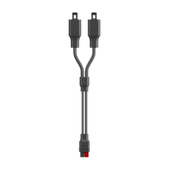







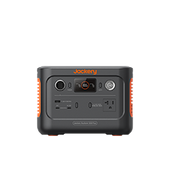

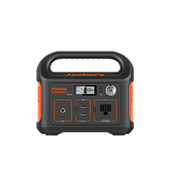

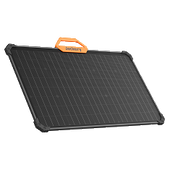













































































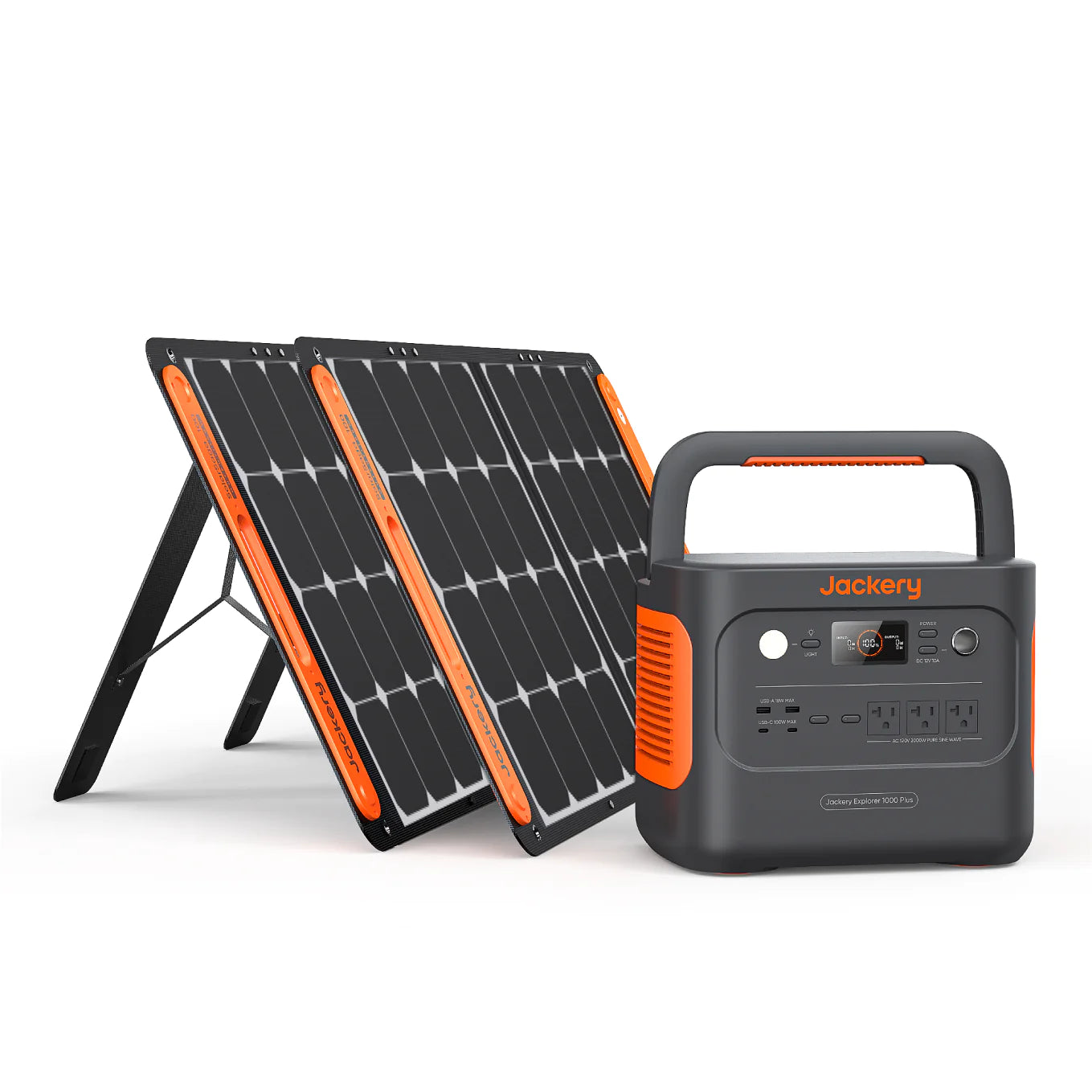






Leave a comment